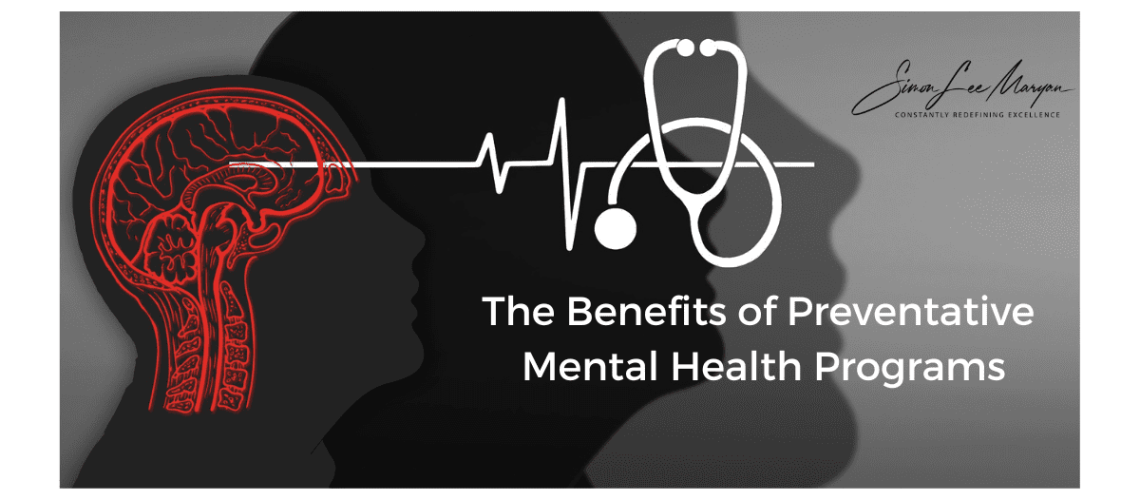Abstract:
This short summary paper explores the significance of implementing preventative mental health programs in the workplace. It discusses the efficacy of these programs, their return on investment, the practicalities involved, and the most effective measures for fostering mental well-being among employees. The paper underscores the need for organisations to prioritise mental health in order to promote productivity, reduce absenteeism, and minimise healthcare costs.

- Introduction
Mental health has increasingly become a major concern for organisations globally, as it significantly impacts employee productivity, job satisfaction, and overall workplace culture. The World Health Organisation (WHO) has estimated that depression and anxiety disorders alone cost the global economy approximately $1 trillion per year in lost productivity. Preventative mental health programs have emerged as a promising solution to address these challenges by fostering mental well-being and resilience among employees.
- Efficacy of Preventative Mental Health Programs
Various studies have demonstrated the effectiveness of workplace mental health interventions in improving mental well-being, reducing symptoms of depression and anxiety, and enhancing overall work performance. These programs typically involve psychoeducation, stress management, and resilience-building techniques that empower employees to manage their mental health proactively.
- Return on Investment (ROI)
Investing in mental health programs can yield substantial returns for organisations in terms of reduced absenteeism, improved productivity, and decreased healthcare costs. Research suggests that the average return on investment for workplace mental health interventions is approximately 5:1, indicating that every pound invested yields a five pound return in terms of improved productivity and cost savings.
- Practicalities of Implementing Preventative Mental Health Programs
Implementing mental health programs in the workplace requires organisational commitment, effective communication, and strategic planning. Organisations should establish a mental health task force, involving representatives from management, human resources, and employees, to assess needs, develop policies, and coordinate implementation efforts. Additionally, organisations should invest in training managers and supervisors to recognise and address mental health concerns among their staff.

- Types of Measures that are Most Effective
Successful workplace mental health programs often incorporate the following evidence-based measures:
- Mental health awareness campaigns: These campaigns raise awareness about the importance of mental well-being and help reduce the stigma associated with mental health challenges. This is only beneficial when action is taken on the information gleaned from the increased level of awareness.
- Employee Assistance Programs (EAPs): EAPs offer confidential counselling and referral services to employees dealing with personal or work-related issues that may impact their mental health.
- Mindfulness and stress management workshops: These workshops teach employees various techniques to manage stress, emotion regulation being the most important, mindfulness meditation, progressive muscle relaxation, and deep breathing exercises etc.
- Flexible work arrangements: Flexibility in work schedules and locations can help employees maintain a healthy work-life balance and reduce stress.
- Manager training: Equipping managers with the skills to recognise and support employees experiencing mental health challenges can foster a supportive and understanding work environment.
- Conclusion
Preventative mental health programs in the workplace can have significant benefits for employees and organisations alike. By promoting mental well-being and resilience, these programs contribute to improved productivity, reduced absenteeism, and lower healthcare costs. Organisations should invest in evidence-based mental health initiatives, train managers to recognise and address mental health concerns, and foster a supportive and understanding workplace culture to maximise the benefits of these programs.

What Next?
Our evidence based mental health and coaching programs provide a three tiered approach for organisations to utilise a plug and play system that fits with, and enhances current mental wellbeing policies and programs. It targets all levels of the organisation and generates mutual support for all levels.
Our flagship course, The SLM Process (Somato-Limbic Metacognitive Process) is offered in two formats, you can review the content of the full course via this link https://simon-maryan.thinkific.com/courses/somato-limbic-metacognitive-slm-process
To discuss how our programs can benefit your organisation email us at hello@simonmaryan.com and one of our team will be in touch to arrange a call or face to face meeting with you.

